We caught up with the brilliant and insightful Ash Glover-Ganapathiraju a few weeks ago and have shared our conversation below.
Alright, Ash thanks for taking the time to share your stories and insights with us today. How did you come up with the idea for your business?
In 2021, I left my full time job launching brands for Big Food Companies, to go work on a regenerative farm in the San Juans. That experience was incredible and transformative in so many ways. For starters, it taught me that I have no desire to be a farmer. It also taught me that our food system is not set up for success in the face of climate change.
Industrial agriculture (which is much of how we make our food today) emits 1 trillion tons of carbon/ghgs, causes a massive loss of biodiversity, and uses chemical fertilizers that harm both our health and planetary health.
After learning about our current food system, I started to change the way I fed myself and my family: changing the composition of our plates, choosing local fruits & veggies as far as possible and shopping local, in co-ops etc.
But…I’m a first generation immigrant, I’m queer and I’m a third culture kid. What these three things mean is that food is a big way in which I express my identity. I was born in India, a notoriously food driven culture. I’ve spent half my life here in the US – mainly in the South – with its strong and unique identities. And Being queer means I have had to find my community in non-traditional ways. All this also means I learned to cook in a whole variety of kitchens and my food is a little Arkansan, a little Texan and a little South Asian.
As I was changing the way I fed myself, it became harder and harder to find foods that honored both my cultural roots – be it South Asian or Texan – while also being environmentally friendly.
Choosing culturally relevant food like legumes, rice, or opting for a good TexMex meal felt like a tradeoff between honoring my roots and wanting to care for our planet.
I’m not alone in this…. as the world continues to globalize, there are more folks people whose food is a hybrid of different places and cultures. And more and more diaspora around the world are seeking culturally relevant food – which doesn’t cleanly fall into boxes.
So I started Ojaswe to answer one complex question: In the face of climate change, how do we make and responsibly enjoy culturally relevant food in a globalized world? And that led us to launching our first line of products one year ago: we have two savory pancake mixes, made with chickpeas & South Asian spices.
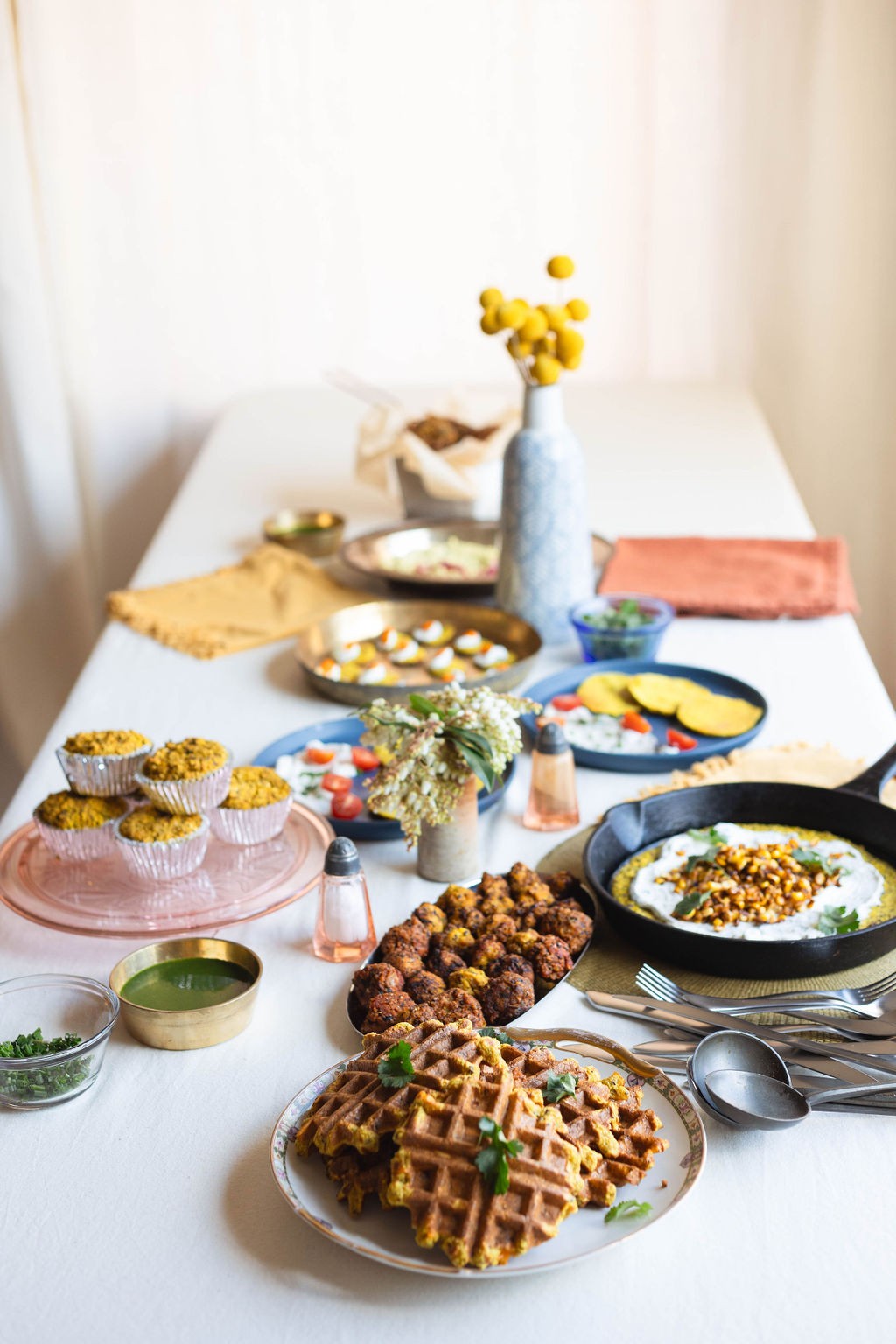
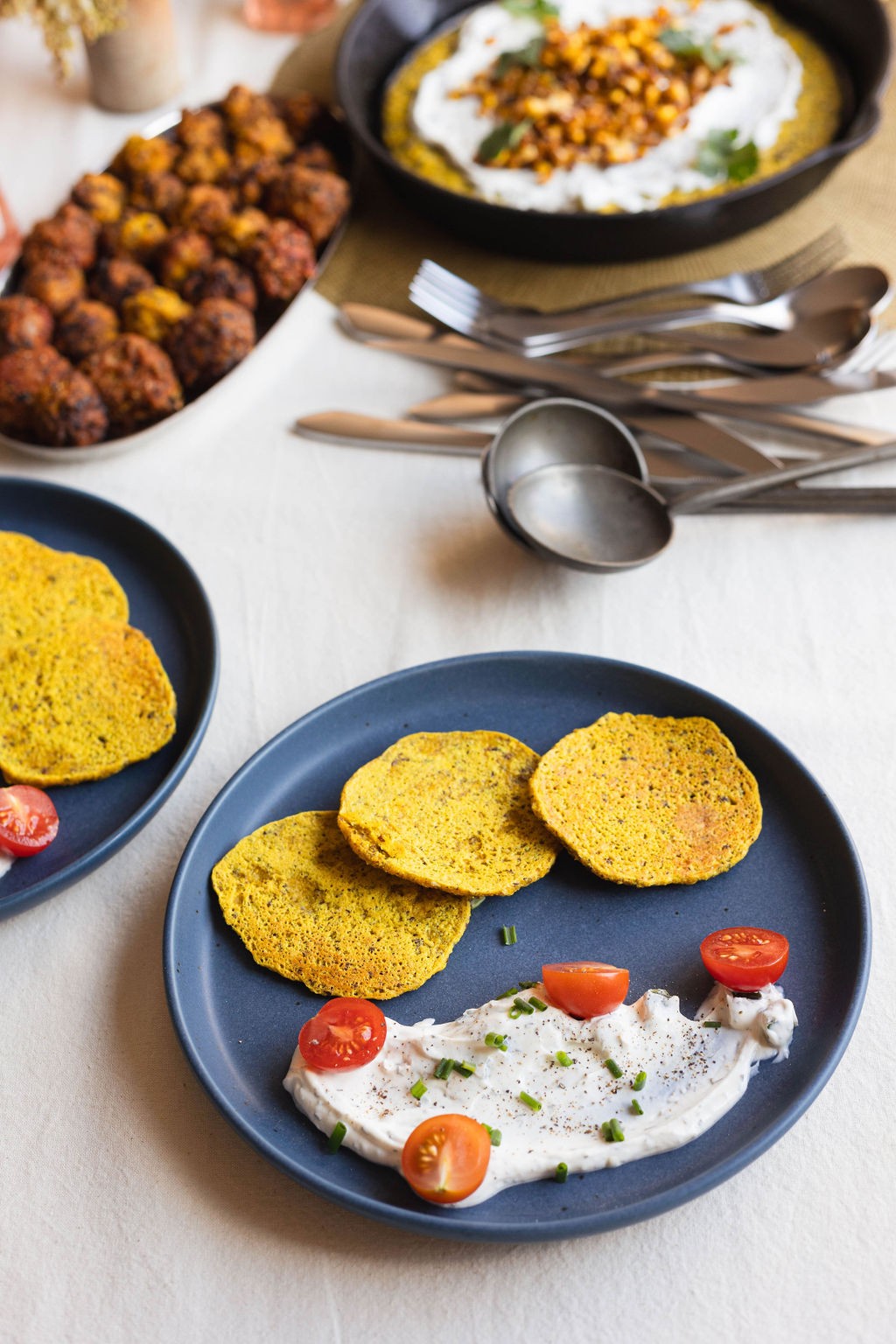
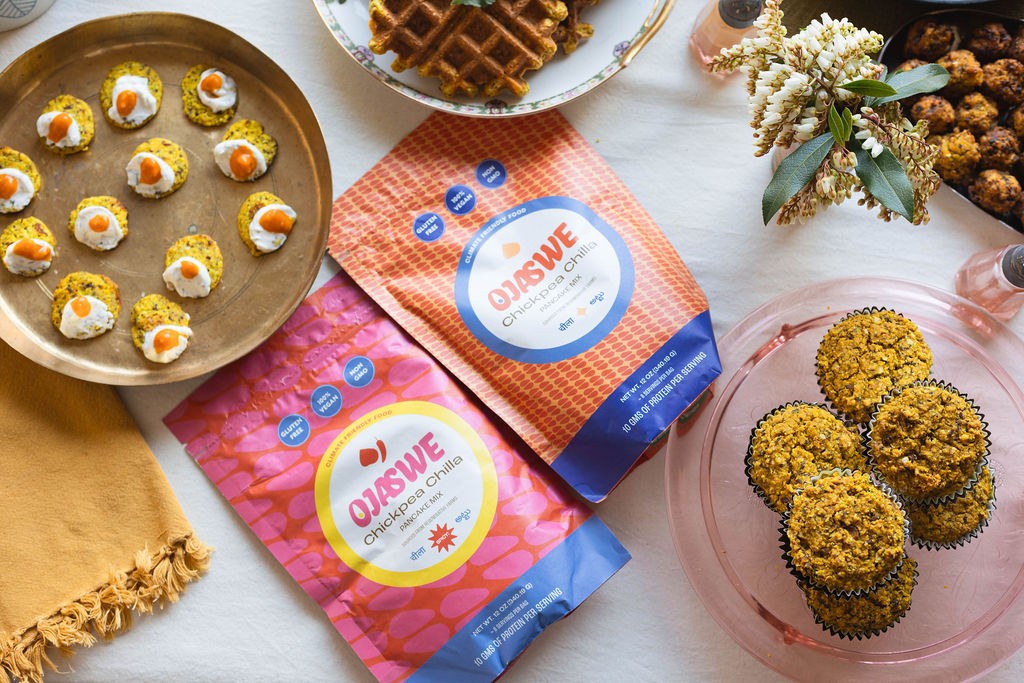
Awesome – so before we get into the rest of our questions, can you briefly introduce yourself to our readers.
I’m Ash, I use she/her pronouns. I’m a queer, immigrant, woman of color. I live in Seattle with my wife, daughter & dog.
I’m a cultural anthropologist by training and I started working in CPG (consumer packaged goods) after pursuing an MBA – mainly out of an interest in consumer behavior (i.e. why people make the decisions we do in the context of purchasing decisions).
In 2021, I left my full time job launching brands for Big Food Companies, to go work on a regenerative farm in the San Juans. That experience was incredible and transformative and led to me starting Ojaswe – a regenerative food company with a farmer-led supply chain.
Ojaswe is on a mission to create delicious, climate-friendly food out of biodiverse ingredients, such as black chickpeas – grown by farmers using regenerative, soil-focused practices. We currently offer 2 Chilla mixes and one Masala Muffin Mix. Our products are a super easy way for everyone to 1) make their pantry more climate-friendly while 2) experiencing delicious, global flavors.
We are really proud of our farm partnerships, of the intention and thought we put into our supply chain, of making an incredible set of products, and of delighting customers (consistently resulting in 5 star reviews).
We live our mission (to make and responsibly enjoy culturally relevant food in a globalized world) in really practical ways: We work directly with small and medium sized regenerative farms in North America to source biodiverse ingredients such as black chickpeas to make culturally relevant food without the massive climate-impact of a global supply chain. Next, we turn to food cultures where these ingredients have been used for centuries for guidance and inspiration on how to use them. And finally, we put these legumes in approachable formats like pancake mixes, making them accessible to a wide range of people who may not otherwise know how to use them. People continually tell me how much they love the product – because it is gluten-free, vegan and packs 10gms of protein per serving with zero artificial additives and is a filling & nourishing meal or snack that they can put on the table in under 10 minutes. And on the supply side also gives our farmers a new market for crops that are not quite “mainstream” in North American cuisine yet. This intentional approach helps us strengthen regional food systems.
But what makes us uniquely us…is the foundation that we’re building all this on: And that is seeing our world as being interconnected. There’s a phrase in Sikhi – Sarbat da Bhalla – which translates to “the well-being of all”. It is based on the understanding that we in community with all aspects of the world around us…. With plants, with animals & with each other. We are One – despite our differences. Our diversity is beautiful and important. (Afterall, a dish really sings when we can bring different flavors & spices together)
As a business, this is our north star. It allows us to make decisions without solely focusing on financial gain. It reminds us to honor and celebrate each ingredient we use. It enables us to pay our farmers equitably, for their effort and time (we pay our farmers up to 2x more than the commodity market). And It allows us to visualize a world where every choice on our grocery shelf can not only help reverse climate change but also celebrate our individuality, diversity and fusion. In other words, it leans on the power of food to bring people together.
In practice, It is why we make vegan & gluten-free products – so that everyone can be welcome at our table.
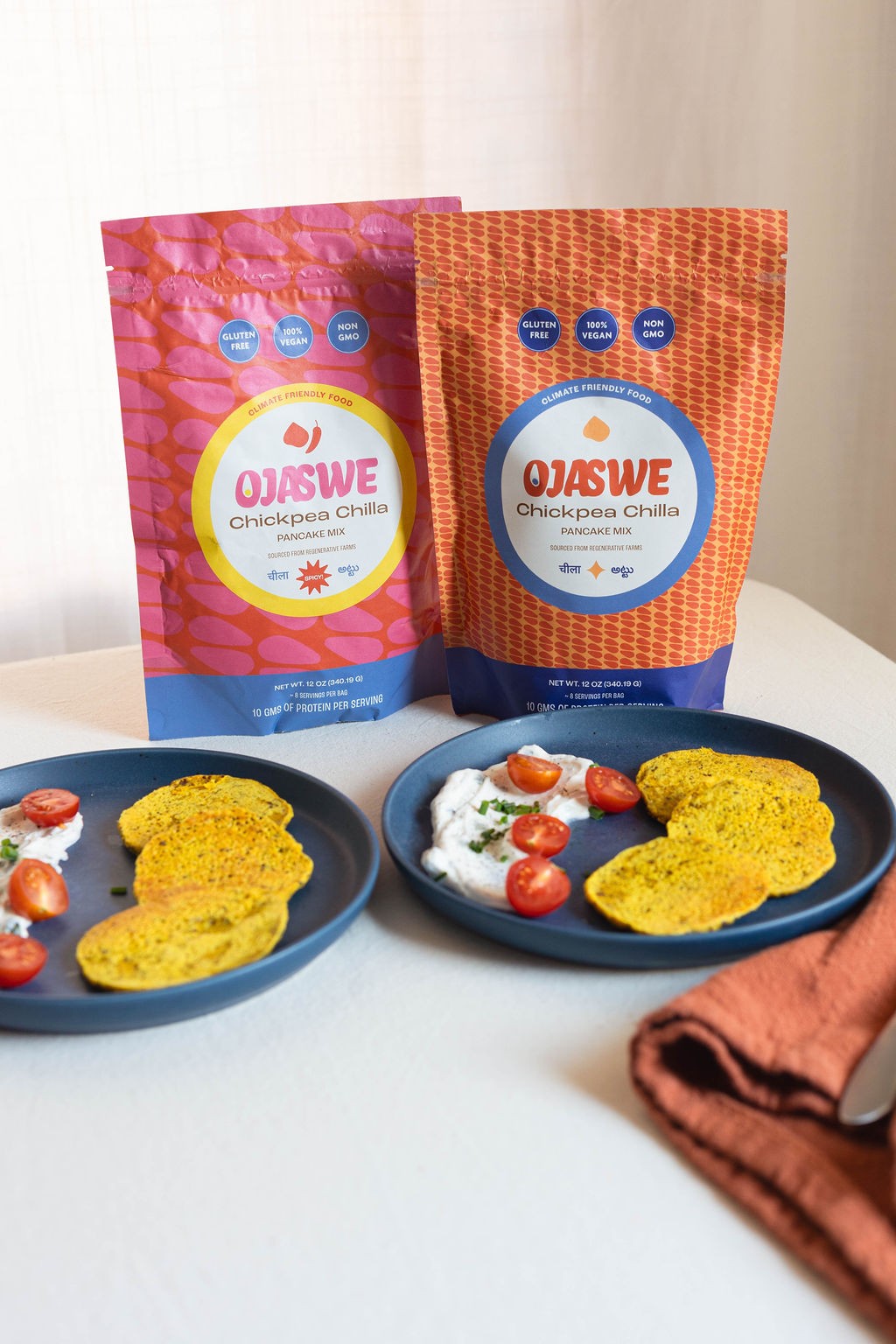

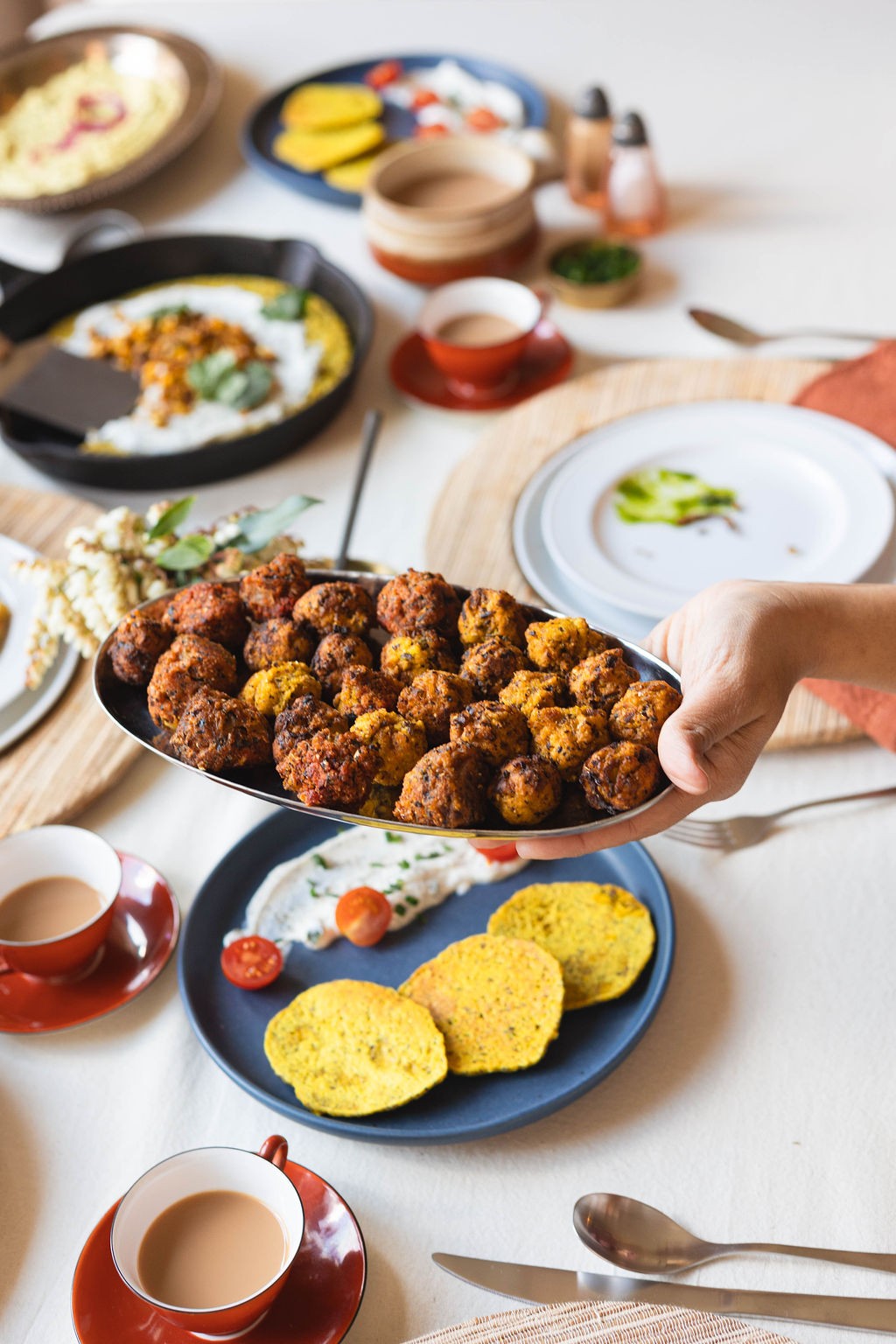
Can you tell us about a time you’ve had to pivot?
I’ve had several pivots in my life & career, which have lent themselves really well to the pivots in my current Business.
Despite being a liberal arts kid, my career started in technology (back when CDs were a thing and developing courses delivered via CDs was a revolutionary idea). Since then, I’ve worked in a variety of roles: from communications & marketing, to education, to most recently a brand owner in Big Food. Each of these pivots was difficult – in the sense that it can feel like you’re always at the starting line – especially in a world that privileges specialization. But working in such a vast breadth of roles helped me develop a well-rounded perspective – seeing connections and pathways that are often invisible.
With Ojaswe, for instance – I didn’t start out wanting to launch a consumer product. Heck, I didn’t even plan on starting a business. This whole thing began from my curiosity in understanding the relationship between food waste & climate change. This slowly evolved into me connecting the dots between my own food needs, the work I was doing launching brands in Big Food, climate change, which in turn led me to pursuing a on-farm course on regenerative agriculture.
Even after that, the first concept for Ojaswe was as a space to connect people over food. We started with events that brought together different people in our food system (farmers, food workers, consumers) over a shared meal.
And in these dinners & online events, I kept hearing the same problem that I was having with my family – “Knowing about the food system is great, but how / where do I find options that work for both me / my lifestyle and the planet?”
On the farmers side of things, I kept seeing how much amazing farm work goes on right here in North America – there are so many beautiful legumes & grains being grown. Farmers want to bring them to market – but especially for smaller holding farms – that is a very heavy lift. And putting those two things together is how Ojaswe landed here – with products that are made with awesome, nutritious, biodiverse legumes and yet, super easy to use and incorporate into your daily life!
Can you open up about how you funded your business?
Funding for a small food business is a bit of a bear – especially when you want to grow sustainably (i.e. not 10x your revenue in year 1). For us that has been a slow ramp – my wife & I put our savings into this business. And we raised one round of $10,000 in 2023 through crowdfunding. We used a platform called NuMarket – which we LOVED because it allowed our customers and most avide supporters to fund the business in exchange for credits to the store. This is such a communally driven model and is so in line with how we want to grow the business.
Contact Info:
- Website: www.ojaswe.com
- Instagram: @ojasweco
- Facebook: https://www.facebook.com/ojasweco
- Linkedin: https://www.linkedin.com/company/ojaswe
Image Credits
Images by Shaina Longstreet


